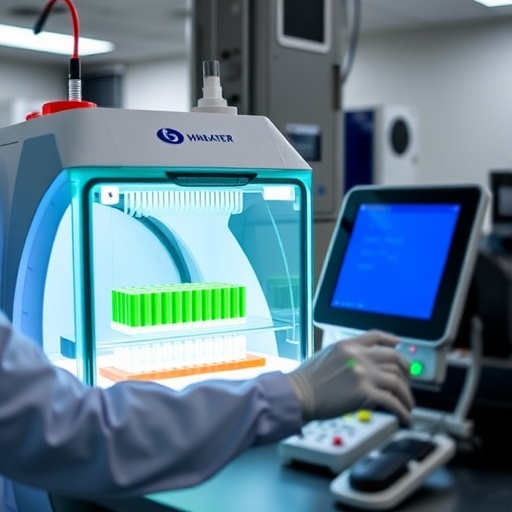
The recent commentary by K. Altundag sheds light on the SERAPHINA study, which offers crucial insights into nab-paclitaxelâs role in treating advanced HER2-negative breast cancer. Given the high stakes involved in treating this aggressive disease, the findings from this study warrant significant attention from both the medical community and patients alike. As breast cancer continues to be a leading cause of cancer-related mortality worldwide, advancements in treatment options must be approached with both enthusiasm and caution.
Nab-paclitaxel, a form of paclitaxel bound to albumin nanoparticles, represents a novel approach in chemotherapy. This formulation has been designed to enhance the solubility and bioavailability of paclitaxel, which is often limited by its poor water solubility. By utilizing albumin, nab-paclitaxel can navigate through the body more effectively, targeting cancer cells while minimizing systemic toxicity. This aspect of targeted delivery could provide significant benefits in managing side effects, a crucial consideration for patients battling advanced cancer.
The SERAPHINA study specifically evaluated the utilization patterns of nab-paclitaxel in clinical settings, emphasizing its efficacy and safety profile. As the study neared completion, one overwhelming theme emerged: the drug was well-tolerated by patients. Common side effects, often a deterrent in cancer treatments, were managed effectively, allowing many participants to maintain their quality of life during treatment. This is a significant advancement, as maintaining a patientâs well-being amidst rigorous treatment regimens is paramount.
A detailed analysis of the efficacy of nab-paclitaxel revealed promising results. According to the findings, patients demonstrated a favorable response rate, with notable reductions in tumor size in a considerable percentage of cases. This outcome is particularly encouraging for patients with advanced HER2-negative breast cancer, a cohort that historically has limited treatment options and poor prognosis. The implications of these results could redefine treatment protocols, opening doors to more personalized and effective therapy strategies.
Additionally, the safety profile underscored in the SERAPHINA study is particularly noteworthy. Traditional chemotherapy regimens often lead to severe side effects, including neuropathy, fatigue, and significant impact on hematological parameters. However, nab-paclitaxelâs unique formulation appears to mitigate some of these adverse effects, which is a major triumph for patient care. As healthcare providers rigorously seek to balance treatment efficacy with quality of life, these findings serve as a beacon of hope.
Central to the ongoing discourse on cancer treatment is the patient perspective. The SERAPHINA study not only focused on clinical outcomes but also assessed the quality of life from the patientsâ viewpoints. A multidimensional approach that includes patient-reported outcomes is critical in understanding the full impact of any treatment strategy. With rising emphasis on patient-centered care, these findings will likely resonate with clinicians as they navigate treatment discussions with patients.
Furthermore, the potential for nab-paclitaxel as a first-line therapy for advanced HER2-negative breast cancer cannot be overlooked. If validated by further clinical research and extended evaluation, it could change the standard of care, providing healthcare professionals with a robust tool in their arsenal against this challenging disease. As new therapies emerge, the urgency for ongoing research becomes even more apparent.
Of great significance is the future trajectory of research stemming from the SERAPHINA study findings. The anticipated studies that will explore combination therapies involving nab-paclitaxel could yield even more substantial benefits in survival rates and improve overall outcomes for patients. Combining this novel agent with immunotherapy or targeted therapies may develop a comprehensive treatment strategy that enhances efficacy while minimizing risks.
Moreover, the discussions emerging from this commentary highlight the importance of continued education for healthcare professionals regarding new treatment modalities. As nab-paclitaxel continues to become integrated into clinical practice, familiarizing oncologists with its mechanism, benefits, and potential challenges will be essential for optimizing patient outcomes. Educational initiatives, including workshops and clinical guidelines, must evolve to encompass these new standards and care strategies.
In light of these developments, pharmaceutical companies must also maintain an ethical and transparent dialogue with the public regarding emerging treatments. As patients increasingly seek information about their treatment options, ensuring clear and accessible communication about nab-paclitaxel’s risks and benefits should be paramount. This dialogue not only fosters trust between patients and their healthcare providers but also empowers patients as active participants in their care.
The insights from Altundag’s commentary on the SERAPHINA study emphasize a purposeful stride toward innovative cancer management. These pioneering results stimulate optimism, igniting hopes for more effective treatment pathways devoid of harsh side effects commonly associated with chemotherapy. Its potential for reshaping therapeutic landscapes offers a new lens through which both patients and practitioners can view advanced HER2-negative breast cancer.
Ultimately, the consensus emerging from the SERAPHINA study is a clarion call for a continued commitment to research and innovation in cancer treatments. As the landscape of oncology evolves, so too must our approaches to care comprehensively address efficacy, safety, and the essential human aspect of undergoing cancer treatment. By harnessing the potential of treatments like nab-paclitaxel, we propel ourselves closer toward more promising futures for those affected by advanced breast cancer and beyond.
In closing, K. Altundag’s commentary serves as a vital contribution to the ongoing discourse in cancer therapy, reinforcing the need for perseverance in research and compassion in care. The findings from the SERAPHINA study stand to benefit a multitude of patients while paving the way for future exploration and innovation in oncology.
Subject of Research: Nab-Paclitaxel for Advanced HER2-Negative Breast Cancer
Article Title: Comments on the SERAPHINA Study Assessing the Utilization, Efficacy, Safety, and Quality of Life of Nab-Paclitaxel in Patients with Advanced HER2-Negative Breast Cancer
Article References:
Altundag, K. Comments on the SERAPHINA study assessing the utilization, efficacy, safety, and quality of life of nab-paclitaxel in patients with advanced HER2-negative breast cancer.
J Cancer Res Clin Oncol 151, 241 (2025). https://doi.org/10.1007/s00432-025-06292-w
Image Credits: AI Generated
DOI: 10.1007/s00432-025-06292-w
Keywords: Nab-paclitaxel, HER2-negative breast cancer, SERAPHINA study, cancer treatment, chemotherapy, patient quality of life, safety profile, efficacy.
Tags: advanced cancer chemotherapy optionsalbumin-bound paclitaxel formulationcancer mortality and treatment advancementscancer treatment side effects managementclinical evaluation of cancer therapiesefficacy and safety of nab-paclitaxelHER2-negative breast cancer treatmentimportance of innovative cancer treatmentsnovel chemotherapy approachespatient tolerance of cancer drugsSERAPHINA study nab-paclitaxel benefitstargeted drug delivery in oncology




